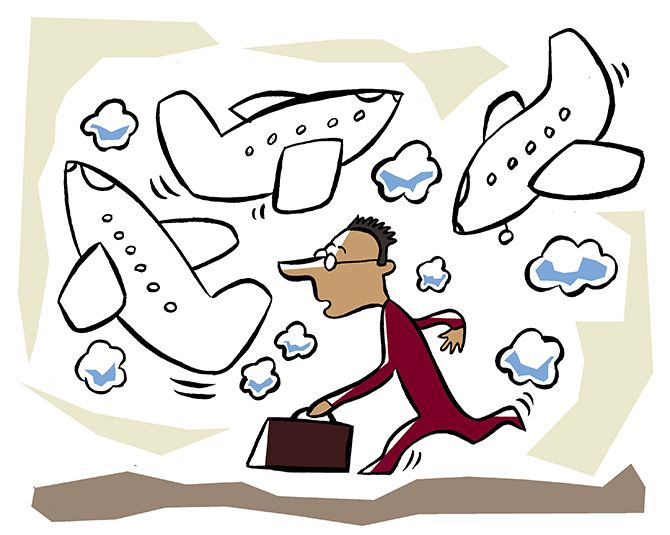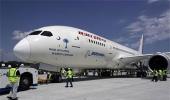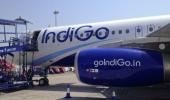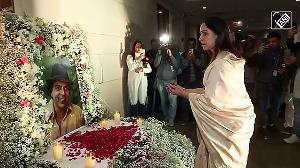To maintain smooth flight operations and avert a staff crisis, India’s airlines will require an additional 2,000 pilots. Unfortunately, the number of additional commanders being recruited is slowing down.
Illustration: Uttam Ghosh/Rediff.com

The cancellation of over 30 flights by IndiGo has brought the growing shortage of pilots to the fore, especially when airlines are expanding their fleets.
According to industry estimates, more than 100 new planes will be added in the next 12 months, a bulk of which will come from IndiGo alone, currently adding nine planes every month.
As a result, over 2,000 additional pilots will be required for the same period to fly new aircraft and tide over the existing crisis in the cockpit.
Despite more flights in operation, the number of additional commanders being recruited is slowing down.
Aviation industry estimates the number of additional commanders recruited by carriers fell by around 10 per cent in 2017-18 over 2016-17.
This was despite domestic carriers scrambling for more expatriates to make up for the dwindling pool of qualified home-grown commanders.
According to CAPA Research, the country has over 7,963 pilots and will require an additional 17,000 pilots in the next 10 years, of which 9,000 first officers will be upgraded to commanders.
IndiGo currently has 3,100 pilots on its payroll. The carrier constitutes for 38 per cent of pilots recruited by domestic airlines.
It also has a domestic market share of 41 per cent and is planning an aggressive overseas flightpath.
It has over 1,250 captains, which effectively constitutes for over 31 per cent of the 4,000 commanders in service.
According to an airline executive, the ballpark figure of five to six commanders and an equal number of co-pilots, or a total of 12 per aircraft, is needed.
“It also takes four to five years for a pilot to become a commander,” he said.
A top executive of an airline says he also expects salaries to go up by 5-7 per cent annually.
The shortage is not just a local malaise.
There is a global demand for pilots, especially with China and West Asian airlines like Emirates and Qatar racing to fill the talent pipeline of pilots.
China itself requires over 5,000 pilots a year to fly its burgeoning fleet.
There are, of course, problems within the country as well.
The number of new pilot licences being issued has been coming down, while the demand for more pilots has gone up.
There are not too many pilot training centres, rue airlines; quality is a constraint, and the overall training infrastructure is flawed.











